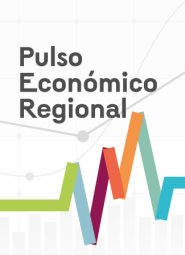The recent pension reform, formalized by Law 2381 of 2024, has introduced a new Comprehensive Social Protection System for Old Age, Disability, and Death of common origin. This reform establishes a system of four pillars: solidarity, semi-contributory, contributory, and voluntary savings. The first pillar is intended to serve people in conditions of extreme poverty; the second pillar is for those who, despite meeting the age requirement, do not fulfill the requirements to access a pension; the third pillar includes contributions from workers with a base contribution income between one legal minimum monthly wage in force (SMMLV in Spanish) and 25 SMMLV; and the fourth pillar corresponds to the voluntary savings component.
In the contributory pillar, pension contributions made by workers are divided between an average premium component and an individual savings component. The average premium component will be managed by Colpensiones and will receive the contributions of all workers whose income is up to 2.3 SMMLV. The individual savings component will continue to be managed by private institutions (such as trust companies or pension fund managers, or PFMs), which will act complementarily based on contributions from workers whose salaries exceed 2.3 SMMLV.
The average premium component is complemented by the creation of the Contributory Pillar Savings Fund (FAPC, in Spanish, or Fund), which will be financed by a portion of the income corresponding to this segment of the contributory pillar. The Law approved by Congress establishes that part of the contributions to the average premium component will go to this savings fund, ensuring that the Government continues to contribute to Colpensiones in amounts similar to those it has been doing so to cover the institution’s deficit over the last decades. Additional contributions resulting from the reform will be saved in the FAPC to help cover Colpensiones' future needs. Calculations by the Ministry of Finance and Public Credit suggest that the resources saved in the FAPC will increase substantially until the middle of this century before starting to decrease in the following years. The approved Law foresees that the Colombian Government must continue contributing to the Fund to prevent an accelerated deaccumulation of the Fund and to protect the funds contributed by each generation through the creation of the accounts known as generational accounts.
One of the novel aspects of this new legal framework is the inclusion of Banco de la República (Banrep) as the administrator of the FAPC, an activity for which Banrep may delegate specialized administrators. The most recent edition of the Report of the Board of Directors to the Congress of Colombia includes a box describing the most relevant aspects of this fund’s designation of Banrep as administrator. This same document includes the communication sent by Banrep to the House of Representatives requesting clarification adjustments to the bill, which, however, were not incorporated into the Law since the House opted to approve a text that was identical to the one previously approved by the Senate.
The role of Banrep as administrator of the FAPC does not entail any responsibility for the collection of contributions or the payment of pensions under the average premium system. These functions will continue to be carried out by Colpensiones with financial support from the Colombian Government. In line with its constitutional role as the Government’s fiscal agent, Banrep will act as the Fund’s administrator under the responsibility of means and not of results. For this purpose, Banrep will provide the appropriate technical and operational infrastructure, ensuring strict separation between the Fund's resources and Banrep's own resources, both in budgetary and accounting terms, guided by principles of prudence and diligence common in trusteeship mandates in the financial field. In addition, in the operational design of the FAPC’s management scheme, Banrep will ensure that the Fund’s operation be completely separate from the management of foreign reserves as well as from monetary, foreign exchange, and credit policy operations, whose guidelines are defined by the institution’s Board of Directors.
The FAPC’s Directing Committee, in accordance with the provisions of the Law, will comprise three government officials (the Minister of Finance and Public Credit, the Minister of Labor, and the Director of the National Planning Department, DNP) together with four experts selected by the Board of Directors of Banco de la República for a period of five years and eligible for re-election for another equivalent period. This Committee will establish the criteria for the administration and management of resources, as well as for investment decisions. As the fundamental body for the governance of the Fund, the Committee must act in its best interest, with a clear mandate and the appropriate authority and competence to perform its functions effectively. As its technical secretary, Banrep will be responsible for convening the meetings, preparing and preserving the minutes, coordinating the work agenda, and managing other aspects associated with the proper functioning of the Committee and the Fund.
By way of background, Banrep’s constitutional role as the Colombian Government’s fiscal agent has allowed it to manage two sovereign wealth funds in prior occasions. Until its liquidation in 2021, it managed the resources of the Oil Savings and Stabilization Fund (FAEP in Spanish); also, following the creation of the new General Royalty System in 2011, Banrep has managed the resources of the Savings and Stabilization Fund (FAE in Spanish) through the FAE Trust Fund since 2012. In both cases, Banrep entered into inter-administrative contracts with the nation, and the investment policy was established by its main governance bodies: the FAEP Steering Committee and the FAE Investment Committee, respectively.
As administrator of the FAPC, Banrep may enter into investment portfolio management contracts with specialized financial institutions such as trust companies or pension fund managers, provided that it have the authorization of the Directing Committee for these institutions to make investments under specific criteria and limits. Banrep will define the management guidelines as per the regulations and procedures established by the Directing Committee, ensuring that the contracted institutions follow these parameters.
Finally, the administration and management of the Fund's resources must follow prudent investor principles, considering investment purposes, terms, portfolio diversification, and investment policy. The Fund’s assessment will be based solely on technical criteria that consider investment and management decisions within the context of the aggregate portfolio rather than focusing on individual investments. This approach considers the risk and return parameters that will be established by the Directing Committee as well as changing market conditions.































































